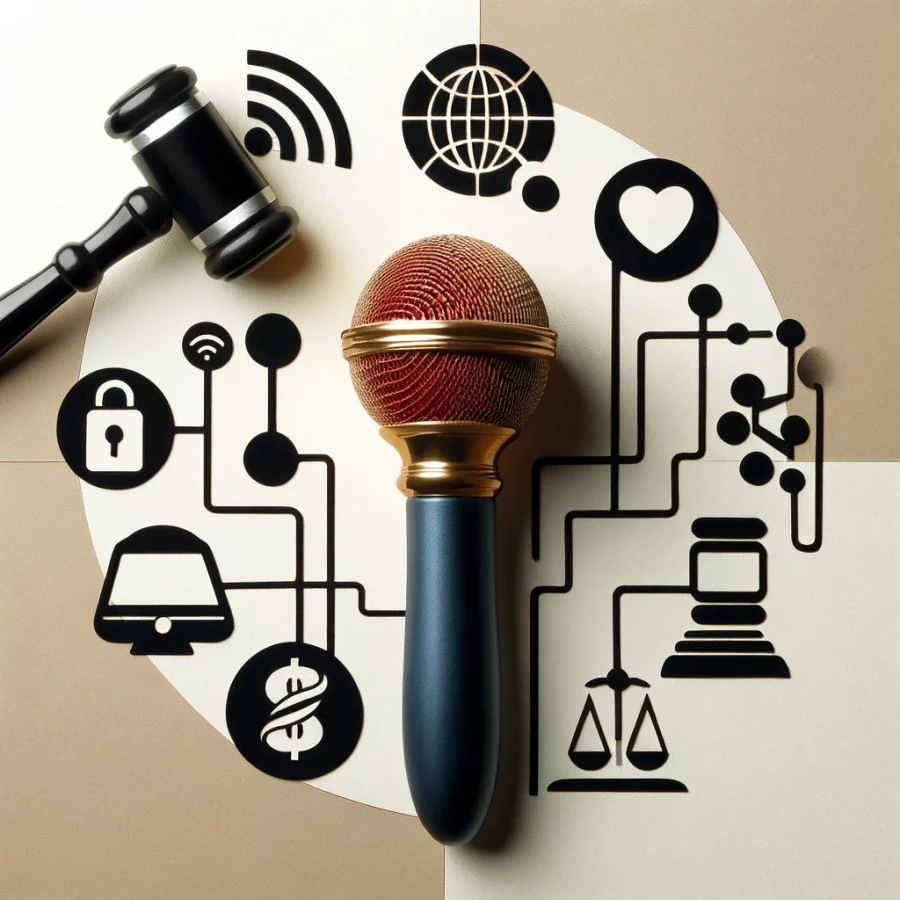The rapidly shifting landscape of media discourse is impacted by various elements,┬Āranging from political interviews to social media’s role in public health communication. This blog explores recent developments and their implications for today’s understanding of media.
A Case of Political Accountability
Mehdi Hasan, an MSNBC presenter renowned for his relentless questioning style, illustrates┬Āhow the media may influence political debate. Hasan’s interview with Republican presidential candidate Vivek Ramaswamy demonstrated how the media can hold politicians accountable. On several topics, including conspiracy theories and Donald Trump’s attack on democracy, Hasan’s tenacity in searching out the truth confronted Ramaswamy. This case emphasises the importance of the media in guaranteeing accurate information transmission and accountability in political communication. However, the subsequent cancellation of Hasan’s show by MSNBC, despite his impactful journalistic approach, raises questions about media outlets’ priorities and the balance between editorial independence and corporate interests.

The Supreme Court and Social Media
In another significant development, the U.S. Supreme Court has begun hearing cases that will define the role of social media in society. These cases explore whether a public official blocking someone from their social media page violates the First Amendment. This issue has implications for the freedom of speech and highlights the growing importance of social media in political discourse. The resolution of these cases, expected by summer 2024, will be a landmark decision in digital communication and governance.

Mobile Social Media in Public Health
The COVID-19 pandemic has brought to light the crucial role of mobile social media in public health communication. A study analysing WeChat official account posts during Malaysia’s third wave of COVID-19 demonstrated how such platforms could effectively convey health-related information. The results show how mobile social media may reach a larger audience and improve health outcomes. Platforms like WeChat and WhatsApp have not only been sources of pandemic information but have also served as vital tools for maintaining social connections.

Reflections on the Future of Media Discourse
These examples illustrate the multifaceted nature of media discourse. The media has a critical role in our society, whether holding political people responsible, shaping public health communication, or influencing legal decisions. However, this role is challenging. The balance between freedom of expression and the responsibilities of media platforms is delicate. As we navigate this evolving landscape, it’s crucial to critically evaluate the sources of our information and the motivations behind them. In conclusion, media discourse is more than just a means of communication; it reflects our society’s values, conflicts, and aspirations. As consumers and participants in this discourse, we should interact with media critically and intelligently, acknowledging its ability to affect our worldview.
Reference
Talbot, M. (2007) ŌĆ£Introduction: media and discourse,ŌĆØ in Media Discourse: Representation and Interaction. Edinburgh University Press, pp. 3ŌĆō17.
Cotter, C. (2015). Discourse and Media. In The Handbook of Discourse Analysis (eds D. Tannen, H.E. Hamilton and D. Schiffrin). https://doi.org/10.1002/9781118584194.ch37
Kopf, S. (2020). ŌĆ£Rewarding Good CreatorsŌĆØ: Corporate Social Media Discourse on Monetization Schemes for Content Creators. Social Media + Society, 6(4). https://doi.org/10.1177/2056305120969877
ROSLYNG, M. M. & DINDLER, C. 2022. Media power and politics in framing and discourse theory. Communication Theory, 33, 11-20.


The examination of media discourse in this blog is relevant. Mehdi Hasan’s appearance on the MSNBC show serves as an example of how important the media is to political accountability. The interview style he employed with Vivek Ramaswamy underscored the importance of media professionals confronting political narratives head-on. But Hassan’s show’s cancellation sparked justifiable questions about how to strike a balance between political or corporate pressure and journalistic integrity. This shows how the media must maintain their editorial independence even when taking on powerful interests.
This development is crucial in terms of the Supreme Court’s role in defining the place of social media in public discourse. It draws attention to how free speech has changed in the digital era. The decisions made in these cases will establish guidelines for the management and use of digital platforms in political settings, highlighting the necessity of clear regulations that uphold the integrity of public discourse and the right to free speech.
The ability of mobile social media to spread vital information was demonstrated by its use in public health communication, especially during the COVID-19 pandemic. It also highlights the difficulty in battling false information, though. Platforms need to keep figuring out how to strike a balance between guaranteeing the accuracy and dependability of information and allowing it to flow freely.
This blog serves as a final reminder of the dynamic and significant nature of media discourse. We must be watchful and sceptical of the information we take in as readers and participants because it has the ability to influence public opinion and governmental decisions.